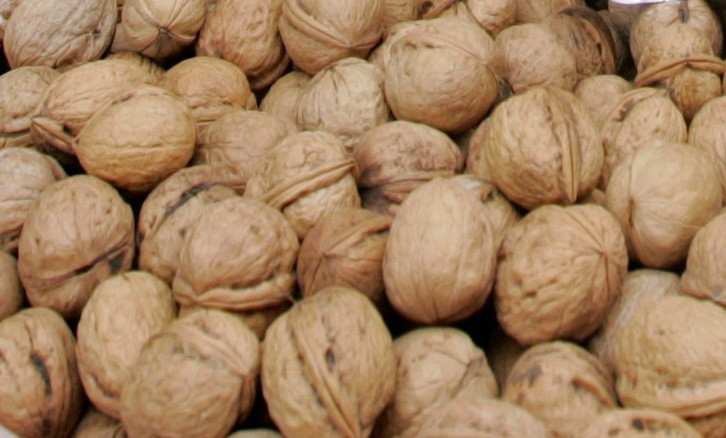Walnuts in Diet Can Slow Tumor Growth: Study

Researchers from the University of California, Davis, in association with colleagues from the Western Regional Research Center of the U.S. Department of Agriculture, have discovered that walnuts in an individual's diet can slow the growth of tumors.
The scientists conducted experiments on two groups of mice that had genetically developed tumors. The results suggested that walnuts slowed the tumor growth in one group.
One group of mice was given walnuts, while the other got soybeans. At the end, the researchers discovered the tumor weight of the walnut-fed group to be approximately half that of the other group. Overall, the rate of tumor growth was 28 percent lower in the walnut-fed group.
According to the researchers, while a low-fat diet is recommended for reducing risks associated with the growth of existing prostate cancer cells, the exclusion of walnuts (which are high in fat but rich in omega-3 polyunsaturated fats, antioxidants and other plant chemicals), may mean forgoing the protective effect of walnuts on tumor growth.
Prostate cancer is the second most common form of cancer in American men. Reports suggest that one in six men will be diagnosed with that form of the illness, usually in later life. However, the mortality rate is usually one in 36 because the tumors do not spread beyond the local sites.
"If additional research determines that walnuts have the same effect in men as they do in mice, adhering to a diet that excludes walnuts to lower fat would mean that prostate cancer patients could miss out on the beneficial effects of walnuts," said Paul Davis, a research nutritionist at UC Davis. "These characteristics of prostate cancer make adding walnuts to a diet attractive as part of prostate cancer prevention."
© Copyright IBTimes 2025. All rights reserved.





















